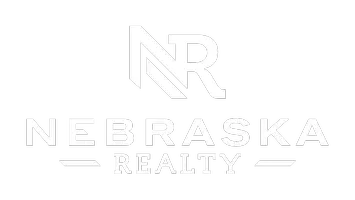Blog > Ready to Be Homeowners?
Are You Ready to Be Homeowners?
Here’s How to Know When to Take the Leap

Buying a home is a significant milestone that comes with both excitement and responsibility. It’s not just about finding the perfect property, but also ensuring that you're financially and emotionally prepared for the commitment. Here are key factors to consider when determining if you’re ready to take the leap into homeownership.
1. Assess Your Financial Health
Evaluate Your Savings:
Before you start house hunting, make sure you have enough savings for a down payment. While 20% is often recommended, there are various loan options available with lower down payment requirements. Additionally, you’ll need funds for closing costs, which typically range from 2% to 5% of the home’s purchase price.
Check Your Credit Score:
Your credit score plays a crucial role in securing a mortgage with favorable terms. A higher credit score can lead to better interest rates and loan options. Obtain a copy of your credit report, review it for errors, and take steps to improve your score if necessary.
Calculate Your Debt-to-Income Ratio:
Lenders use your debt-to-income (DTI) ratio to assess your ability to manage monthly payments. Aim for a DTI ratio of 43% or lower, including your potential mortgage payment. This indicates a healthy balance between your income and existing debt obligations.
2. Understand Your Budget
Determine Your Affordability:
Use mortgage calculators to estimate how much house you can afford based on your income, savings, and current debts. Consider not just the mortgage payment, but also property taxes, insurance, maintenance, and utilities.
Plan for Future Expenses:
Homeownership comes with ongoing costs such as repairs, maintenance, and potential upgrades. Ensure you have a budget that accounts for these expenses, and avoid stretching your finances too thin with your home purchase.
3. Evaluate Your Long-Term Goals
Consider Your Stability:
Buying a home is a long-term commitment. Consider your job stability, future career prospects, and whether you plan to stay in the area for at least the next five to seven years. This time frame can help you build equity and recover from the initial costs of purchasing a home.
Align with Personal Goals:
Think about your personal life plans. Are you planning to start a family, or do you have other significant life changes on the horizon? Your home should accommodate these future plans and provide a comfortable living space for years to come.
4. Prepare for the Mortgage Process
Understand Mortgage Options:
Research different types of mortgages and lenders to find the best fit for your financial situation. Fixed-rate mortgages offer stability with consistent payments, while adjustable-rate mortgages may provide lower initial rates but come with future uncertainties.
Get Pre-Approved:
Getting pre-approved for a mortgage gives you a clear understanding of how much you can borrow and demonstrates to sellers that you’re a serious buyer. Pre-approval involves a thorough review of your financial situation, so be prepared to provide documentation of your income, assets, and debts.
5. Factor in Market ConditionsResearch the Housing Market:
Understand the current real estate market in your desired area. Are home prices rising or falling? Is it a buyer’s market or a seller’s market? This information can impact your home search strategy and the timing of your purchase.
Work with a Real Estate Professional:
A knowledgeable real estate agent can provide valuable insights into the local market, help you find homes that meet your criteria, and guide you through the buying process. Their expertise can save you time and money in the long run.
6. Evaluate Your Emotional Readiness
Prepare for the Responsibility:
Homeownership requires a commitment to maintaining and improving your property. Ensure you’re ready for the responsibilities that come with owning a home, including routine maintenance and unexpected repairs.
Be Ready for the Emotional Investment:
Buying a home is an emotional journey. Be prepared for the ups and downs of the process and the potential stress that comes with making such a significant financial decision. Having a support system and a clear understanding of your goals can help you navigate the emotional aspects of homeownership.
Deciding to buy a home is a major life decision that requires careful consideration and preparation. By assessing your financial health, understanding your budget, evaluating your long-term goals, preparing for the mortgage process, factoring in market conditions, and evaluating your emotional readiness, you can make an informed decision about whether you’re ready to take the leap into homeownership. If you find that you’re prepared, the journey to owning your own home can be incredibly rewarding and fulfilling. Happy house hunting!


